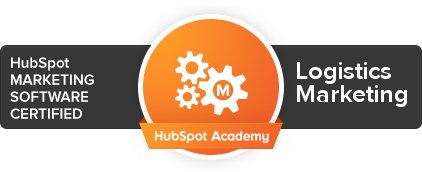Let’s say, instead of marketing and selling logistics, you sold office furniture. Your current challenge: set up sales visits with local office managers.
Should be easy, right? Your company has a very large selection of chairs, desks and other office equipment, maybe the largest, and your prices are extremely competitive. But your calling efforts are not going well. Seems prospects can get chairs and desks from lots of other places and, upon hearing your pitch, most say they are “happy with our current provider.”
 But what if your pitch had nothing to do with price or selection or service or convenience?
But what if your pitch had nothing to do with price or selection or service or convenience?
What if, instead, you educated the prospect on the compelling evidence that STANDING DESKS improve employee health and make office workers far more productive and happier? You offer to share what you know with the prospect during a 30-minute briefing, which will include estimates for how much his company could save through the use of standing desks from reduced sick time, fewer insurance claims, and better productivity.
Okay, standing desks are just one of the many products you sell, but chances are you’d have better luck nailing the appointment because you've exposed him to a different way of thinking. From there, who knows?
The Challenger Sale
The “standing desk” approach is just one example of a “challenger” sale – a popular approach to selling, particularly for high-value contracts like logistics products and services.
If you are involved in selling logistics, check out the book The Challenger Sale. It’s based on research with B2B sales managers and addresses the link between sales success and certain behavioral attributes of salespeople. About 6,000 sales reps were profiled. For a quickie summary of the challenger sale approach, read this Hubspot blog post.
According to the research, there are five different “types” of salespeople: the hard worker, the challenger, the relationship builder, the lone wolf, and the problem solver. Far and away the largest percentage of high sales performers was found among the Challenger group.
Unlike other types, Challengers have a different view of the world. The Challenger approach to selling strips out the usual company, product and service overviews. Instead, Challengers introduce the prospect to a new commercial insight that challenges the prospect’s current view and leads them to evaluate a new approach.
This commercial teaching approach does not follow the popular Spin Selling process of asking prospects questions to learn more about their specific challenges. It focuses exclusively on an unknown problem or opportunity that the supplier teaches the customer.
Applying the Challenger Method to Selling Logistics
The Challenger selling strategy works best on more complex sales, so it aligns well with selling logistics products and services.
It can transform the sales interaction from a competitive sell (“We know there are lots of companies that do what we do, we just do it a little better.”) to a missionary sell (“Traditional approaches deliver incremental change; there’s a new and better way that will delivery breakthrough change and results.”)
It’s much easier to convince people you’re different, than better.
While you may understand the differences between the services and value your company can deliver versus your competitors, to your prospects all the marketing claims sound very much the same. That’s why approaching them with a fresh, even provocative, perspective can be very effective.
What Role Can Marketing Play?
The Challenger approach to selling is tailor-made for an integrated sales and marketing approach.
Marketing gathers and documents the evidence to support a new approach (white papers, case studies, instructive videos, etc) and then shares this information broadly. Sales then leverages this ammunition to support a far more satisfying sales interaction than your typical “capabilities pitch.”
When selling logistics products and services, what could be your company’s “challenger” approach?
Free eBook:
 The Five Deadly Sins of 3PL Marketing
The Five Deadly Sins of 3PL Marketing
3PL Marketing is Challenging. Learn the 5 Mistakes You Need to Avoid.
Download the eBook







